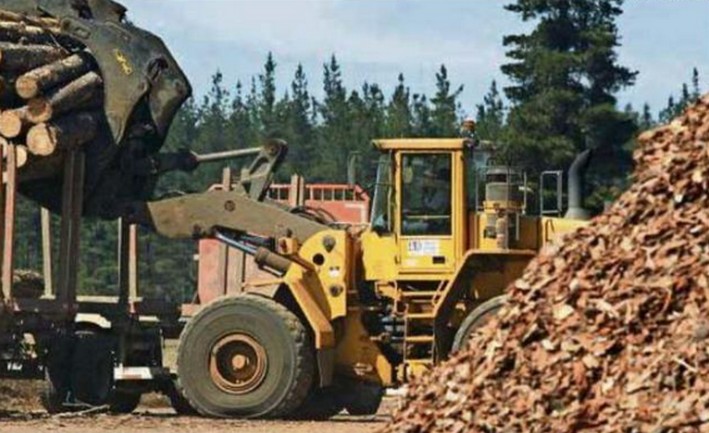The idea was proposed in the Chamber of Deputies, and the association of small and medium-sized timber businesses urged "understanding the reality before legislating."
Leaders and members of Pymemad, the association representing small and medium-sized timber industrialists in Los Ríos, expressed their rejection of a potential "royalty" on the forestry industry proposed by some lawmakers, including Deputy Jaime Mulet.
Fernando Hales Chaban, the association's president in the region, stated that this is a "serious" and "absurd" idea because it "ignores the nature of this activity."
He explained that, in his view, it is "a direct attack" on the two largest companies in the forestry sector, "but it would also have a devastating impact on SMEs, which already face a complex economic environment with laws that directly affect the development and sustainability of their businesses."
IT'S NOT MINING
Pymemad at the national level also voiced their concern and urged legislators not to confuse this activity with mining or fishing, "which are the industries typically subject to royalties."
"In mining, once the mineral is extracted, it cannot be recovered, so the royalty has an economic justification. In fishing, the activity is also based on the direct extraction of a natural resource that cannot be stored or regenerated immediately.
In contrast, the forestry process is entirely different. Companies must acquire land, plant trees, wait years—sometimes decades—for the trees to grow, and then invest in the necessary infrastructure to harvest, process, and transform them into products. Additionally, forest plantations regenerate, and the production cycle is renewable. It is not a resource that is irreversibly depleted, as in mining," they explained.
IMPACT ON SMEs
"The proposal to establish a forestry royalty is, in our opinion, a mistake. It not only affects large companies but also jeopardizes the stability and future of small and medium-sized forestry businesses, which already face considerable economic challenges," emphasized Hales.
"It is time for politicians to understand the realities of SMEs and work to create a fairer and more sustainable economic environment for everyone. Establishing a fairer system for the forestry sector requires an approach that values and supports SMEs, rather than subjecting them to a new fiscal burden that could harm their survival. SMEs are the engine of our economy, and their strengthening should be a priority, not an additional burden," he added.
He also stressed that Pymemad is pushing for a change in how SMEs are classified and promoted.
"We need a system that understands the specific realities of each sector and enables cooperation between large and small businesses, fostering productive linkages and sustainable development," he concluded.
"The proposal for a forestry royalty is a mistake. It not only affects large companies but also jeopardizes the stability and future of small and medium-sized forestry businesses."
Source: subscription edition ofAustral de Valdivia







Comentarios (0)
No hay comentarios aún. ¡Sé el primero en comentar!
Deja un comentario